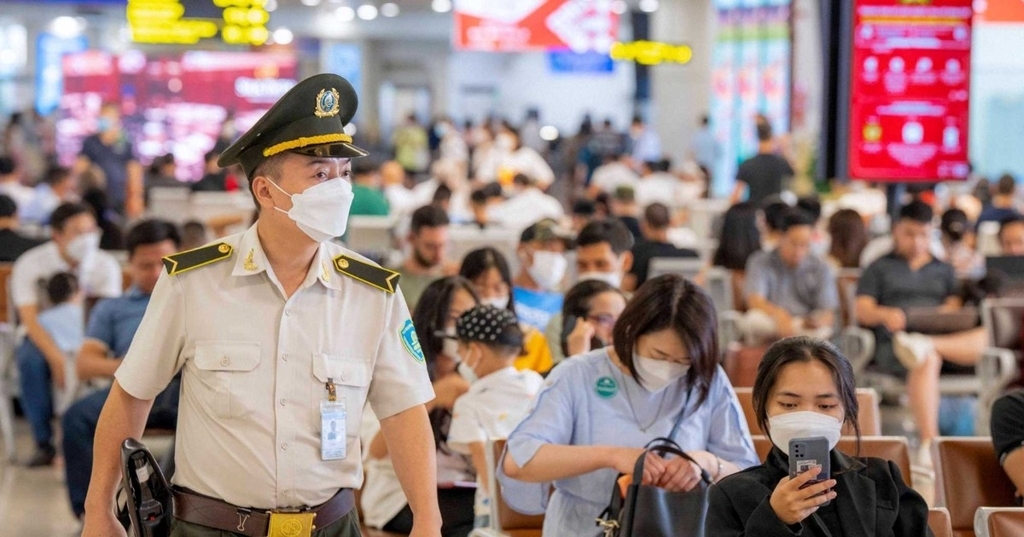Vietnam Shifts Aviation Security to Ministry of Public Security
Vietnam is enhancing aviation safety by moving security responsibilities to the Ministry of Public Security, ensuring a more efficient and robust air travel environment.

Key Points
- The Vietnamese government has transferred aviation security responsibilities to the Ministry of Public Security to enhance safety and efficiency.
- This transition introduces a National Aviation Security Center, which aims to improve the management of security measures at airports.
- With an emphasis on accountability, the new structure seeks to address potential vulnerabilities and bolster public trust in air travel safety.
The recent announcement by the Vietnamese government regarding the transfer of aviation security responsibilities from the
to the Ministry of Public Security marks a significant shift in how air travel safety will be managed in the country. This transition, effective from March 1, is a proactive step aimed at enhancing the security measures that protect passengers and air transport infrastructure. As we delve into this pivotal change, it's essential to recognize the implications it may have on the aviation sector and overall public safety.
Understanding the Shift
On February 27, a directive was issued confirming this transition, which involves the Ministry of Public Security taking on two major functions regarding aviation security: the state management of aviation security and the provision of security services at airports and cargo handling facilities. This change aligns with the government's objectives to streamline operations and ensure a robust security framework in aviation.

Historically, the aviation security tasks were under the jurisdiction of the Ministry of Transport. The recent adjustments come in light of broader governmental reforms aimed at optimizing the state apparatus. This move not only enhances the operational efficiency of aviation security but also addresses concerns regarding potential vulnerabilities that might arise from fragmented oversight.
Managing Security Risks Effectively
One of the primary goals of this transition is to improve the management of state funds and resources while effectively mitigating risks associated with corruption, waste, and legal violations in aviation. With the Ministry of Public Security's expertise in handling security and investigative tasks, the hope is that a more cohesive approach to aviation security will emerge.
Statistics from the Ministry of Transport reveal a notable improvement in handling aviation security incidents. In 2024 alone, authorities tackled 294 aviation security violations, a reduction from the previous year. Such data underscores a successful trajectory in managing risks, further bolstered by the anticipated integration of management functions under the Ministry of Public Security.
Operational Enhancements and Resource Allocation
The Ministry of Public Security plans to create a National Aviation Security Center to oversee the operations of aviation security services at airports. This center will operate based on the existing Airborne Security Division, thus ensuring continuity while upgrading capabilities in line with international standards.
As part of this transition, personnel from the Ministry of Transport will collaborate to ensure a seamless operational handover. This joint effort will focus on staffing challenges, resource allocation, and the integration of technology to enhance security measures. The commitment to maintaining uninterrupted aviation operations during this transition phase reflects a conscientious approach to public safety.
Future Implications for Aviation Security
The transition to the Ministry of Public Security will also address more intricate challenges, such as cyber threats and data security in aviation systems. The government has recognized the necessity for improved transparency and accountability within security operations, thereby reinforcing public trust in aviation safety.
Moreover, with the increasing complexity of air travel post-pandemic, ensuring the safety not only of passengers but also of air traffic systems has never been more critical. The extensive experience that the Ministry of Public Security has in handling crises will be invaluable in navigating these challenges, especially in light of past occurrences involving air security.
Looking Ahead
The transition of aviation security responsibilities to the Ministry of Public Security is a forward-thinking initiative aimed at bolstering the security of air travel in Vietnam. By streamlining operations and enhancing accountability, this shift is expected to yield a more efficient and effective security environment for the aviation industry. As the nation forges ahead, collaboration among agencies and the integration of advanced technologies will be essential in ensuring that air travel remains a safe and reliable mode of transportation for all.
Through this comprehensive approach to aviation security, Vietnam is poised to enhance not only its domestic air travel safety protocols but also improve its standing in international aviation security assessments. This initiative serves as a testament to the commitment of the Vietnamese government to safeguarding public safety in the ever-evolving landscape of air transportation.


